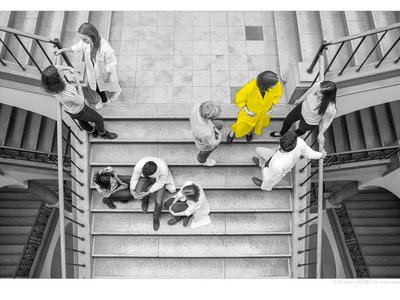

The number of patients who run the risk of suffering severe retinal diseases or even going blind in the future is growing much faster than the number of trained ophthalmologists. The time for the examination is becoming increasingly scarce, at the same time the amount of information that has to be collected, processed and classified, especially in the form of retinal scans, optical coherence tomography (OCT), is growing. In the newly opened Christian Doppler Laboratory for "Artificial Intelligence (AI) in the Retina" under the direction of Hrvoje Bogunović from the University Clinic for Ophthalmology and Optometry, the focus is on the development of AI-based systems for more efficient diagnostics and monitoring and therapy of retinal diseases.
Bogunović and most of his working group are computer scientists but are involved and employed at the University Clinic for Ophthalmology and Optometry at MedUni Vienna. This means that there is close, interdisciplinary and successful cooperation with the retinal specialists there. The laboratory's corporate partner is Heidelberg Engineering, a company specializing in medical devices that develops imaging and healthcare IT products for diagnostics in ophthalmology.
Source: APA/OTS